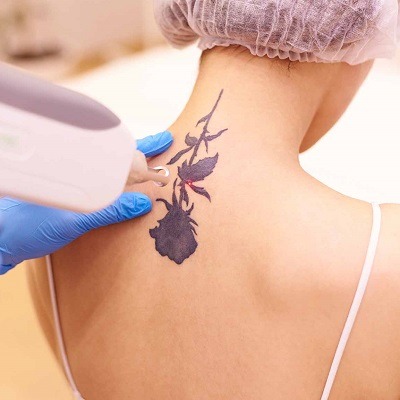Laser tattoo removal is a non-invasive procedure that utilizes focused light energy to break down ink particles embedded in the skin. These particles are then absorbed and naturally eliminated by the body’s immune system. Over the years, advancements in laser technology have improved the precision and effectiveness of this method, making it the most sought-after option for tattoo removal. Laser Tattoo Removal in Dubai has become a widely accepted and highly advanced cosmetic procedure, thanks to innovations in laser systems suited for various skin tones and ink types.
How Lasers Target Tattoo Ink
Different wavelengths of laser light are required to target various ink colors effectively. Black ink, being the most common and easiest to treat, absorbs all laser wavelengths. On the other hand, colors like green, blue, and yellow may require specialized lasers such as Q-switched Nd:YAG or PicoSure lasers. These lasers emit short bursts of energy that shatter the ink into microscopic fragments, which are then removed through the body’s lymphatic system.

Can All Tattoos Be Completely Removed?
Factors That Influence Complete Removal
While many tattoos can be significantly faded or completely removed with lasers, not all tattoos vanish entirely. Several factors determine the likelihood of complete removal:
-
Ink Depth and Density: Professional tattoos, applied deeply and uniformly, often take longer to remove than amateur tattoos, which may be more superficial.
-
Ink Colors Used: Black and dark blue inks respond well to treatment, while lighter colors like yellow, turquoise, and white may be resistant.
-
Tattoo Age: Older tattoos generally fade more easily than fresh ones as the ink has already begun to break down naturally.
-
Skin Type: Skin tone can affect how the laser energy is absorbed. Darker skin types require more caution to avoid pigmentation issues.
-
Location of the Tattoo: Tattoos on areas with better blood circulation (like the chest) may fade faster than those on extremities.
What Makes Some Tattoos Hard to Remove?
Some tattoos are composed of inks with metallic compounds or pigments that are more resistant to laser energy. Additionally, cover-up tattoos—where one tattoo is layered over another—can be particularly complex due to the multiple layers of ink.
Advanced Laser Technologies and Their Role
PicoSecond and Q-Switched Lasers
Modern laser tattoo removal has been revolutionized by the development of PicoSecond and Q-switched lasers. PicoSecond lasers emit energy in trillionths of a second, shattering ink particles more effectively and reducing the number of sessions needed. Q-switched lasers are known for their ability to target specific pigment colors with high precision, minimizing skin damage.
Tailoring the Laser to the Tattoo
No single laser works for every tattoo. Experienced practitioners often adjust laser settings, pulse duration, and wavelength depending on the tattoo’s characteristics. Multi-wavelength systems allow more flexibility to target multi-colored tattoos with higher efficiency.
Ideal Candidates for Laser Tattoo Removal
Who Should Consider It?
Laser tattoo removal is suitable for most healthy adults who wish to fade or remove their tattoos. It is especially effective for individuals with lighter skin tones and darker ink, but advancements in technology have made it increasingly effective for darker skin tones as well.
Preparing for the Procedure
Before beginning treatment, it’s important to avoid sun exposure, tanning, and certain medications that may increase sensitivity to light. A thorough consultation is typically conducted to assess the tattoo, skin type, and potential risks.
Conclusion
While not every tattoo can be erased completely, Laser Tattoo Removal offers an advanced, effective solution for most individuals seeking to fade or eliminate their tattoos. The outcome depends on various factors, including ink color, skin type, tattoo location, and age. Thanks to cutting-edge laser technologies and tailored treatment plans, more people are achieving significant fading or complete removal with fewer side effects than ever before.

